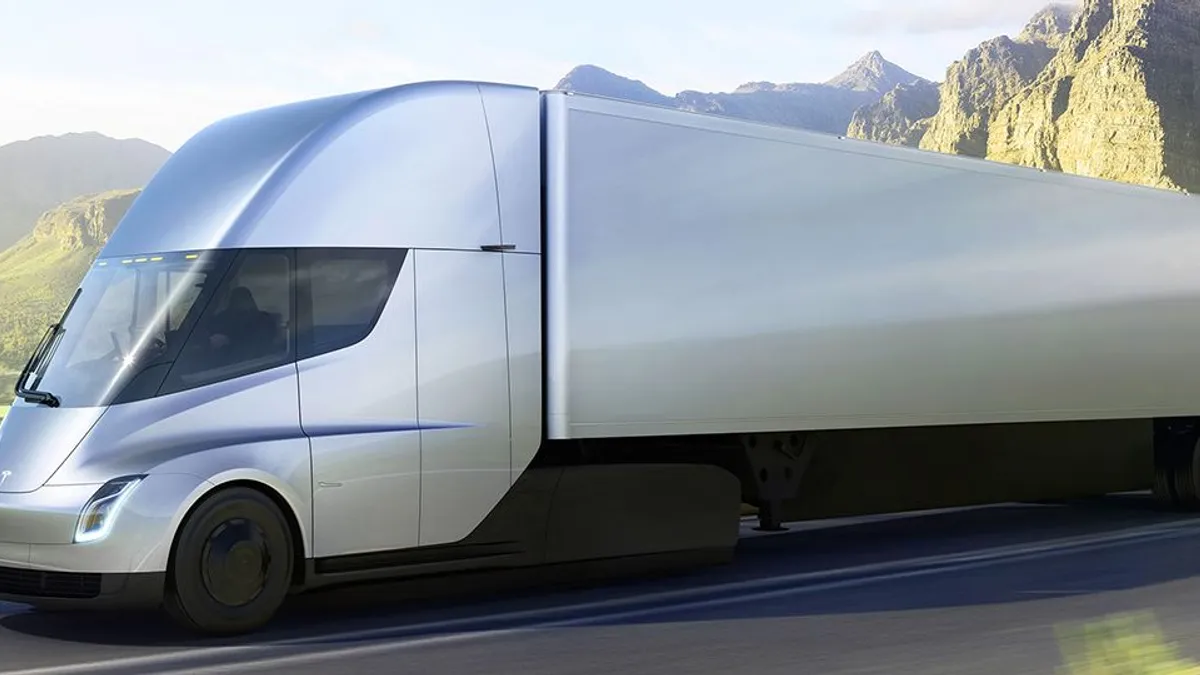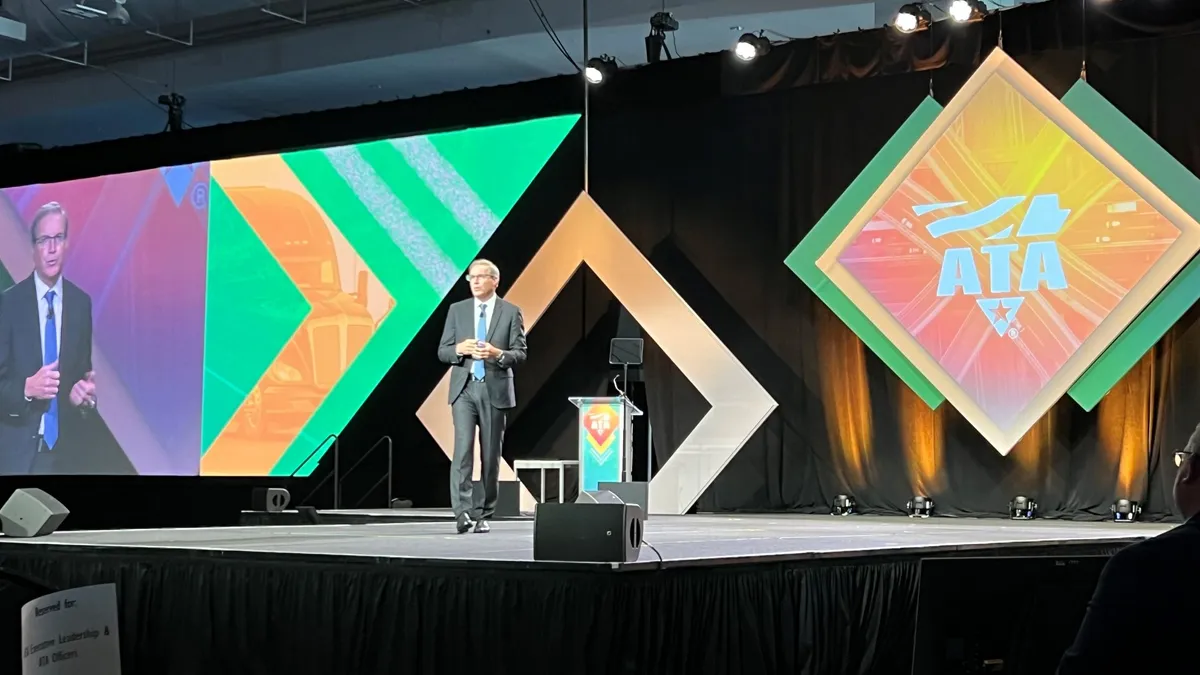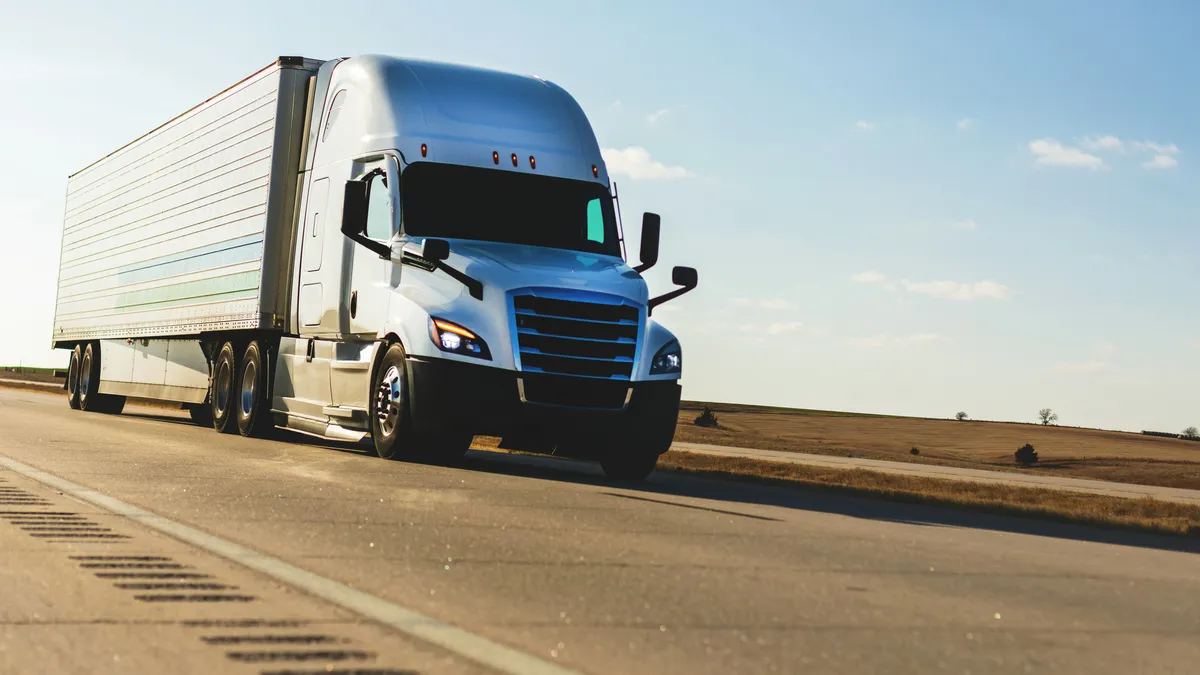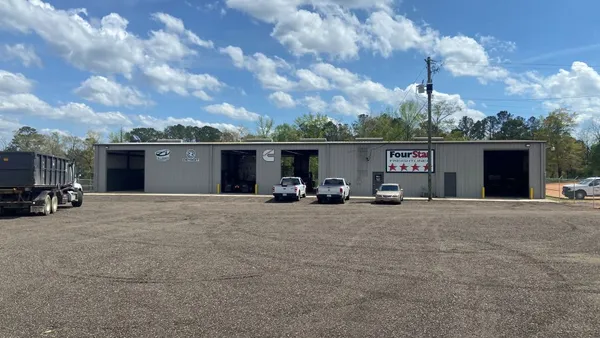Dive Brief:
- Tesla has postponed the first delivery of its Tesla Semi to 2021, the company said in its earnings report last week. The electric truck was already behind schedule, as the first delivery was originally planned for 2019.
- The delay is not caused by a markedly down quarter for Tesla. "Despite global operational challenges, we were able to achieve our best first quarter for both production and deliveries," the company reported. Total revenues were up 32% year over year (YoY), while profits were up 118%, YoY.
- On the company's Q4 2019 earnings call in January, Tesla co-founder and CEO Elon Musk remarked that accelerating production of the Tesla Semi would take battery resources away from other products, such as Model 3 or Model Y. In that earnings report, Tesla announced it was planning to produce "limited volumes" of the semi in 2020.
Dive Insight:
Elsewhere in the industry, OEMs are so far forging ahead with plans to lower emissions, despite the coronavirus.
The first week of March, Nikola and VectoIQ announced they'd merge to create a company focused on the development of zero-emission trucks. Nikola said it hoped to accelerate production of its battery-electric and hydrogen fuel cell vehicles, which would compete in the Class 8 market. The Tesla Semi would also compete in the Class 8 field.
Daimler Trucks North America launched the Freightliner Customer Experience Fleet the second week of March. The all-electric fleet comprises six heavy-duty Freightliner eCascadias and two medium-duty eM2-106 trucks.
Toyota and Hino Motors announced at the end of March they are teaming up to build a heavy-duty commercial truck, powered by hydrogen fuel cells. In that announcement, the companies said the first prototypes were scheduled to hit roads in Japan later this year.
In Tesla's Q4 2019 earnings call, Musk said production for the truck slowed because of Tesla's capacity to produce batteries. "If you don't improve battery production capacity, then you end up just shifting unit volume from one product to another and you haven't actually produced more electric vehicles," he said. "And so, we've got [to] make sure we get a very steep ramp in battery production and continue to improve the cost per kilowatt hour of the batteries. This is very fundamental and extremely difficult."
Pressure has been mounting for the adoption of alternative fuels, particularly in California. On March 9, the California ports of Long Beach and Los Angeles approved a $10 fee for trucks, and $20 fee for Class 8 trucks, that don't meet the state standards on low- or zero-emissions. The fees would help finance a transition to electric drayage vehicles.
Mike Roeth, executive director of the North American Council for Freight Efficiency (NACFE), told Transport Dive in February that the main concern for electric trucks surrounds Class 8. He said there are a "fair amount" of electric trucks deployed now, but mainly for short hauls. The Tesla Semi touts a range of "300 or 500" miles with more than $200,000 in fuel savings.
Within hours of its unveiling in 2017, J.B. Hunt and Walmart had ordered "multiple" trucks for testing. In 2018, one Morgan Stanley analyst suggested there may have already been 1,200 pre-orders.











